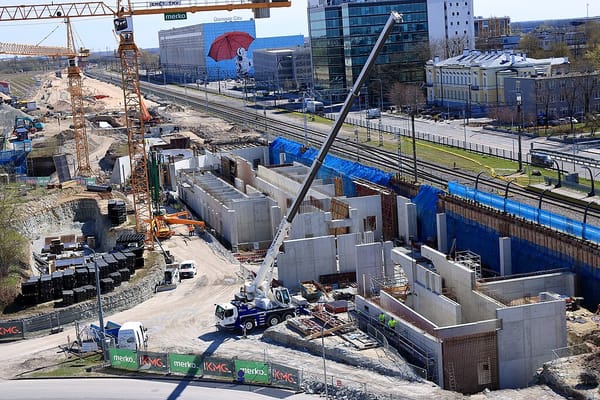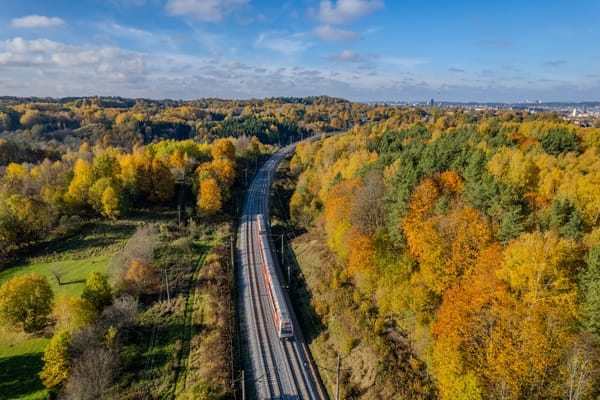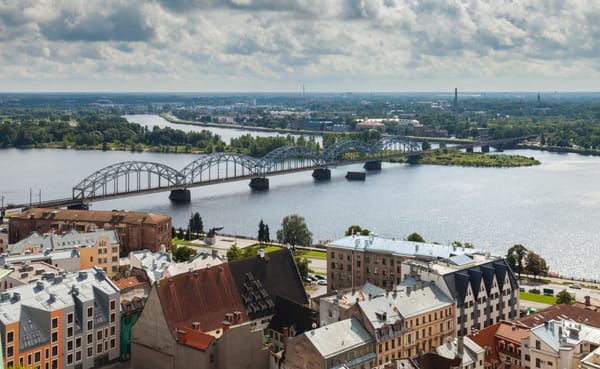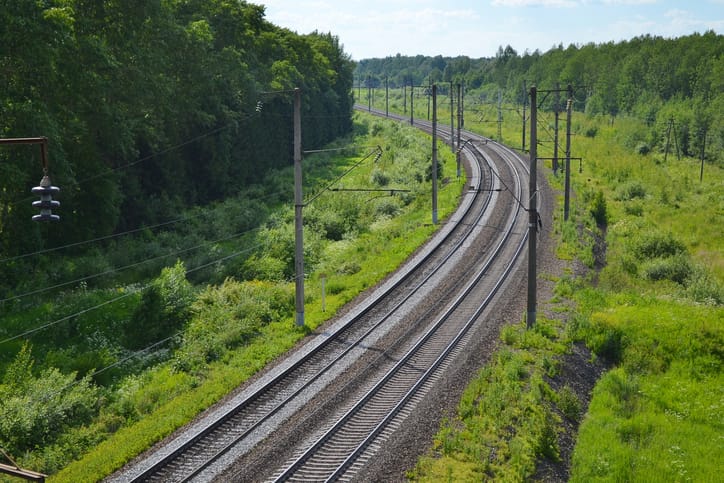
Estonian gov’t inks record deals for Rail Baltica construction
The Estonian government has signed contracts worth nearly EUR 440mn to build 2 sections of the Rail Baltica corridor, marking the largest infrastructure agreements in the country’s post-independence history.
Strategic EU project
The largest ever regional transport investment, Rail Baltica is a strategic EU project to link, via a 870km high-speed line, the capital cities of Tallinn, Estonia, to Warsaw, Poland, through Riga, Latvia, and Vilnius, Lithuania, and ultimately to the EU’s Trans-European Transport Network.
The railway is designed to increase both passenger and freight transport, strengthen economic ties between Central and Northern Europe, and serve as a strategic economic corridor in the region. In 2017, auditor Ernst & Young estimated its socio-economic benefits at EUR 16.2bn. However, the project has faced repeated delays, cost inflation and uneven progress across national stretches.
The new Estonian contracts, signed with joint ventures led by Merko Ehitus and KMG Inseneriehituse, cover over 20km of high-speed track and related infrastructure near Harju county, north Estonia; and resort town Parnu, south-west Estonia.
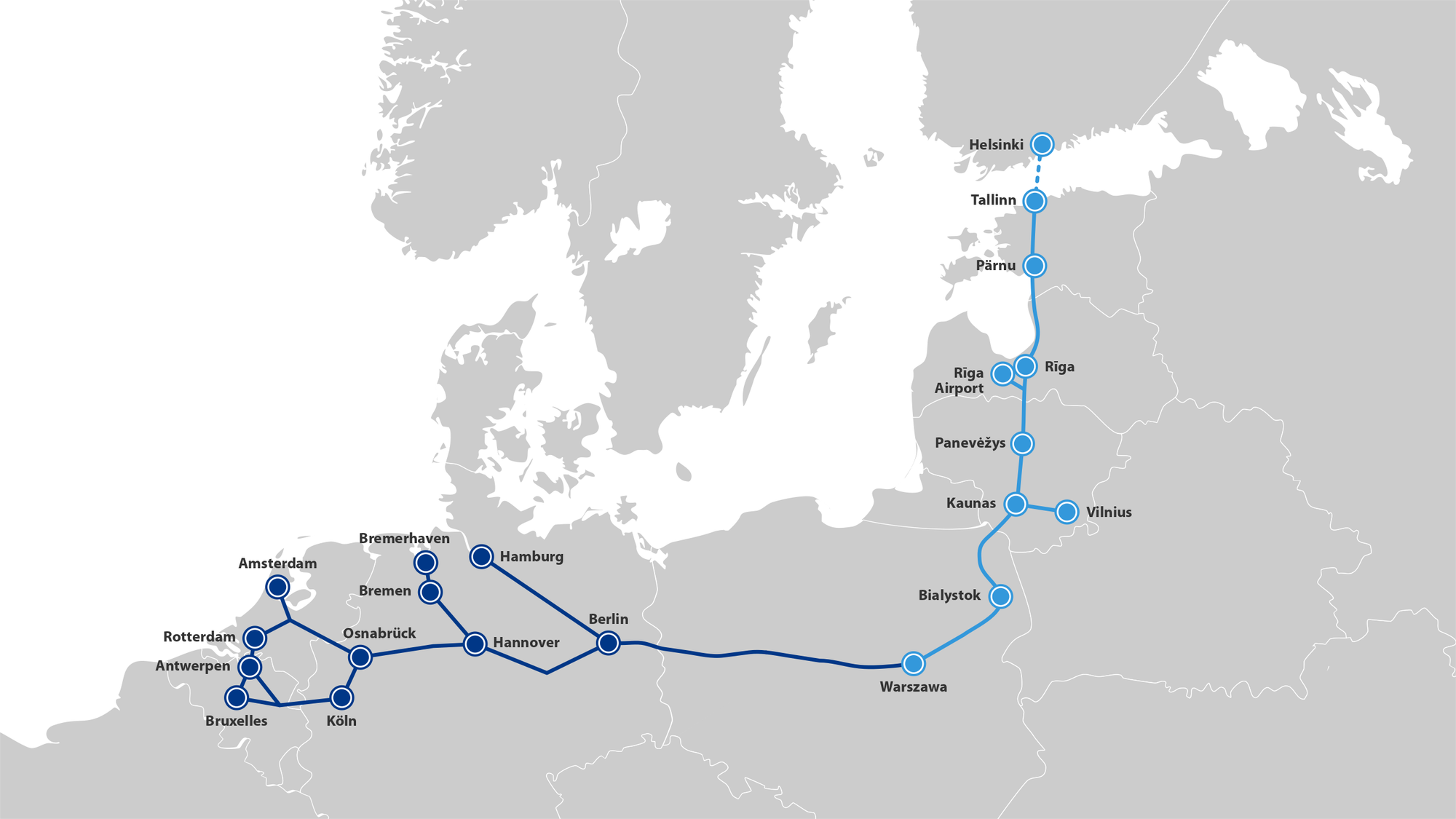
The Estonian Transport Administration said the works represent critical progress toward the EU’s 2030 connectivity targets. Local officials described the agreements as a milestone for domestic construction capacity and regional integration. As well as railbed preparation, the contracts also cover bridges, wildlife crossings, drainage and access roads.
The Merko-led consortium will build the 9km Parnu stretch for EUR 189mn. The KMG-led joint venture will construct the Harju county section, approximately 11km in length, for EUR 248mn. Both are due to be completed by 2030, in line with EU infrastructure funding windows.
Rail Baltica has drawn scrutiny in recent years for governance problems and ballooning costs. Latvia and Lithuania have also faced contractor delays and budget revisions. The European Court of Auditors warned in a 2023 review that cross-border coordination remained weak and called for more transparent oversight of joint procurement and scheduling.
Estonian officials said the latest contracts were awarded through competitive procedures and are co-financed by the EU’s Connecting Europe Facility. Estonian Transport Minister Kristen Michal said the government would prioritise delivery timelines to avoid penalties linked to EU funding deadlines.
The contracts mark real progress, risks remain
Analysts noted that while the contracts mark real progress, risks remain. The Baltic construction sector faces labour shortages, and higher input prices could test the financial resilience of contractors over multi-year build periods. Logistics experts also warned of bottlenecks unless Latvia and Lithuania accelerate parallel procurement steps.
The Estonian government said a third major construction contract for a section near Rapla, north-central Estonia, is due later in 2025, which would complete the procurement of all southern stretches under its responsibility.
While Estonia has kept pace, its southern neighbours have faced delays. With EU funding windows closing and public pressure mounting, the success of Rail Baltica now rests on whether Latvia and Lithuania can deliver their segments on time. If they fall behind, the region’s largest infrastructure project risks becoming a stranded asset of modern rails laid across broken links.

